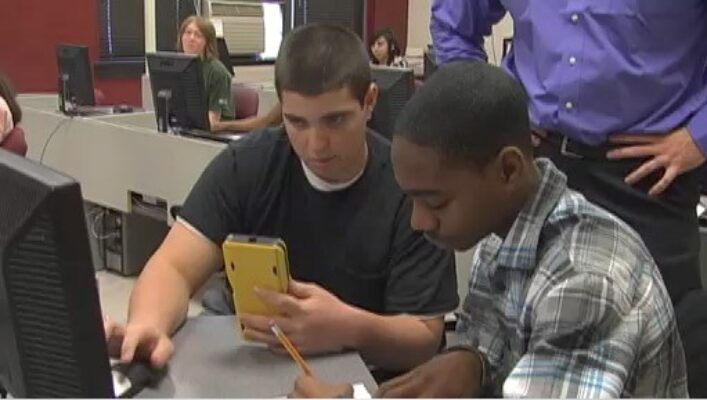Breakthrough Schools D.C. Round 3 Grantees
16 schools reimagining for more personalized and deeper learning ...

Educators are rethinking the purposes, forms, and nature of assessment. Beyond testing mastery of traditional content knowledge—an essential task, but not nearly sufficient—educators are designing assessment for learning as an integral part of the learning process.
Locations: Across California, including but not limited to these cities:
Fresno
Hayward
Long Beach
Los Angeles
Oakland
San Diego
San Francisco
Settings: Urban and Suburban
School Types: District, Charter
Targeted Grades: 6-12
Number of Participating Students: More than 1,000
Number of Participating Teachers: More than 200
Curriculum Areas: All
Learning Policy Institute
The CORE Network
Internationals Network for Public Schools
Linked Learning Alliance
Envision Schools
High Tech High
New Tech Network
Los Angeles Unified School District
Fresno Unified School District
Long Beach Unified School District
San Francisco Unified School District
East Palo Alto Academy (Sequoia Union High School District)
Hillsdale High School (San Mateo Unified School District)
Oceana High School (Jefferson Union High School District)
The California Performance Assessment Collaborative (CPAC) is launching an official state pilot where participants have opportunities to learn from one another and deepen practice; find common ground despite discrete approaches to performance assessment; engage in research and documentation of various practices; and ultimately, inform state policymakers about the supports and conditions needed to broadly implement high-quality graduation performance assessments that can serve as a viable alternative to traditional measures of college, career, and civic readiness. Learning within the pilot will occur on three different levels: current practitioners, those already engaged in performance assessment; emerging learners, those at the beginning or expansion stages of performance assessment implementation; and observers, those interested in learning closely with the collaborative.
We hypothesize that throughout the implementation of the pilot:
Over a longer period of time, we also hypothesize that young people who have been through schools that are using performance assessments in the way we have described will demonstrate their skills by succeeding in college at higher rates than similar students who have not had these opportunities.
If the project team is successful, the creation of CPAC will serve as an official “innovation site” within the state where educators from various contexts can work together within a professional learning community dedicated to the advancement of authentic, meaningful assessments for California children. The learnings captured and documented during the pilot phase will be informative not only to those seeking to engage with performance assessment work in their school, district or network contexts, but also serve an informational purpose within the state policy context. Ultimately, the goal is for this state-endorsed demonstration pilot to inform the development of a new set of high school graduation measures that provide schools and districts with flexibility in how their students demonstrate their mastery of deeper learning competencies and readiness for postsecondary college, career and civic life.